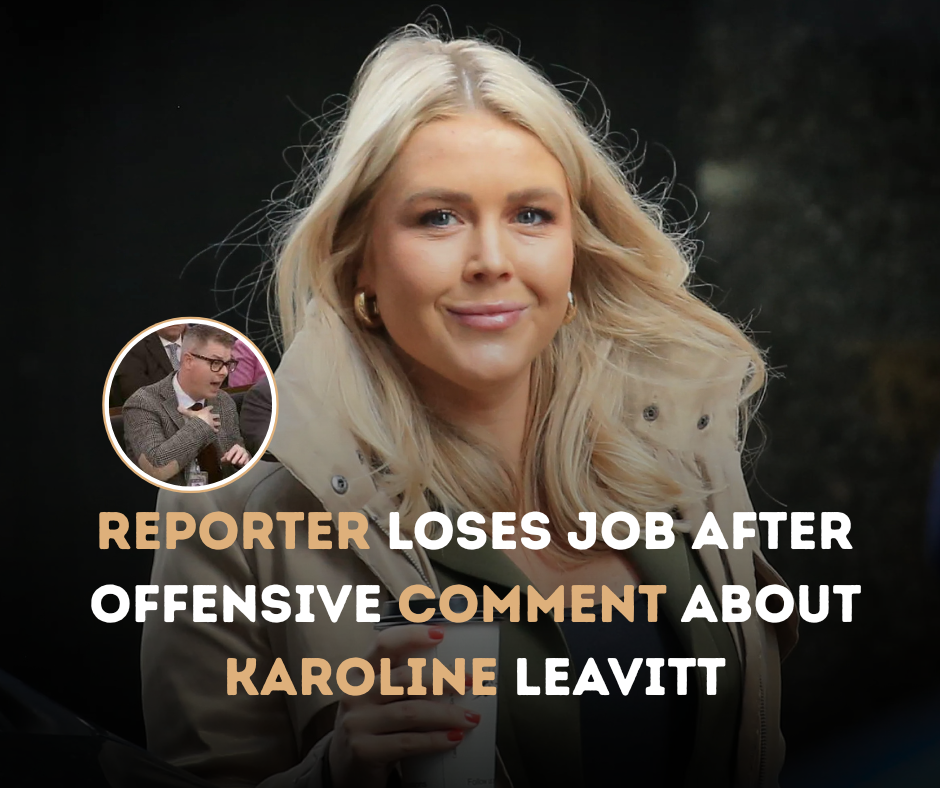A prominent liberal television host has been terminated after making controversial and inflammatory remarks during a live broadcast involving White House Press Secretary Karoline Leavitt. The incident, which quickly made waves on social media, has reignited discussions about media bias, professional standards in journalism, and the treatment of conservative voices in mainstream media.
The incident occurred during what was expected to be a routine political interview. Instead, it escalated when the host, Paul Danning, interrupted and dismissed Leavitt’s comments, accusing her of perpetuating what he called a “fake narrative of victimhood.” He went on to suggest that conservatives as a whole were more interested in “playing the victim” than participating in meaningful governance or public service.
The remarks immediately drew backlash from viewers across the political spectrum. Many saw the tone and content of Danning’s comments as disrespectful and unprofessional, particularly given Leavitt’s role as a spokesperson for the White House. Critics accused Danning of using his platform not to inform, but to belittle and provoke.
As the clip circulated online, the network that employed Danning found itself under increasing public and commercial pressure. Calls for his firing flooded social media, with hashtags demanding accountability trending for hours. Several of the network’s major sponsors reportedly paused or reconsidered their advertising deals in response to the public outcry.
Within 48 hours of the incident, the network released a formal statement announcing that Paul Danning would no longer be hosting his show. The statement emphasized the network’s commitment to maintaining a respectful tone and upholding journalistic integrity, regardless of political affiliation.
Karoline Leavitt, who remained composed during the exchange, later responded to the incident by calling for higher standards in political discourse. She emphasized the need for civil conversations in a divided country and said that personal attacks have no place in serious journalism or political debate.
This situation has once again highlighted the strained relationship between media personalities and public officials, particularly in today’s hyper-polarized political climate. It also underscores the growing demand among viewers for professionalism, fairness, and respect in political coverage—values that many feel are too often sacrificed for ratings or ideological point-scoring.
As for the network, it now faces the challenge of restoring public trust and proving that it can deliver balanced coverage, even amid intense political differences. Meanwhile, Leavitt continues her work representing the administration, undeterred by the incident and with the backing of many who praised her calm and measured handling of the encounter.
